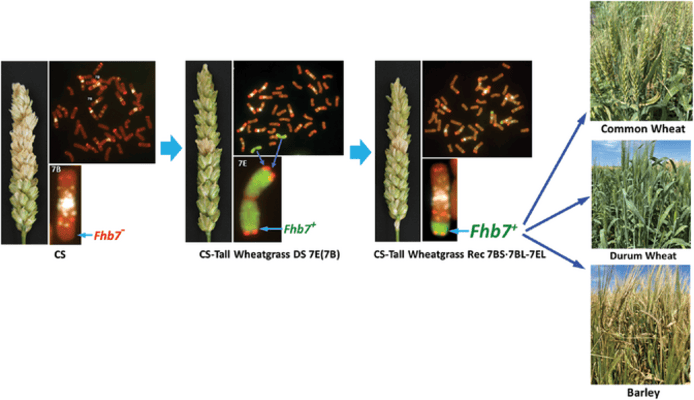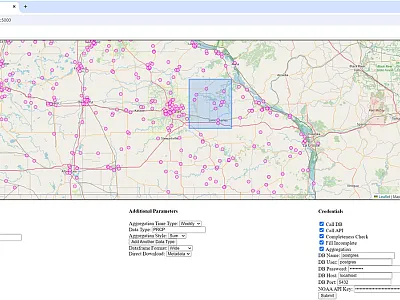A New Spring Wheat Germplasm Resistant to Fusarium Head Blight

Fusarium head blight (FHB) is a devastating fungal disease of wheat (Triticum aestivum L.) in the United States and worldwide. Host resistance has proven the most economically effective and environmentally friendly tactic of FHB disease control in wheat production. However, the lack of effective resistance genes has limited the progress in breeding for FHB resistance in wheat, especially durum wheat.
USDA‐ARS scientists developed and released the new wheat germplasm ‘WGC002’ for use in wheat breeding. They introduced a new FHB resistance gene (Fhb7 The2) from wild grass into wheat by chromosome engineering (non‐GMO). The researchers developed markers specifically for Fhb7 The2 and validated them in different wheat genotypes, ensuring that they are highly diagnostic for the gene. Additionally, WGC002 does not contain the yellow flour pigment gene, an unfavorable trait end‐use quality in wheat, linked to Fhb7 The2, making it ready for immediate use in wheat breeding.
This FHB‐resistant wheat germplasm harboring Fhb7 The2 will enhance and diversify resistance of wheat to FHB disease and potentially minimize economic losses caused by this disease to wheat growers.
Adapted from
Cai, X., Danilova, T., Charif, A., Wang, F., Zhang, W., Zhang, M., … & Funnell‐Harris, D. (2024). Registration of WGC002 spring wheat containing wild grass‐derived Fusarium head blight resistance gene Fhb7 The2. Journal of Plant Registrations, 18, 179–186. https://doi.org/10.1002/plr2.20342
Text © . The authors. CC BY-NC-ND 4.0. Except where otherwise noted, images are subject to copyright. Any reuse without express permission from the copyright owner is prohibited.







